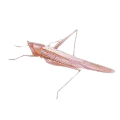- Abalangira History
- Babiito-Kibulala History
- Babiito-Kiziba History
- Babiito-kooki History
- Butiko History
- Ffumbe History
- Kasanke History
- Kasimba History
- Kayozi History
- Kibe History
- Kibuba History
- Kinyomo History
- Kiwere History
- Kkobe History
- Lugave History
- Lukato History
- Mazzi ga Kisasi History
- Mbogo History
- Mbuzi History
- Mbwa History
- Mmamba History
- Mmamba kakoboza History
- Mpeewo History
- Mpindi History
- Mpologoma History
- Musu History
- Mutima Musagi History
- Mutima Omuyanja History
- Nakinsige History
- Namuŋŋoona History
- Ndiga History
- Ndiisa History
- Ngabi Nnyunga History
- Ngabi Nsamba History
- Ngeye History
- Ngo History
- Njaza History
- Njovu History
- Nkebuka History
- Nkejje History
- Nkerebwe History
- Nkima History
- Nkula History
- Nnyonyi Nnyange History
- Nseenene History
- Nsuma History
- Nsunu History
- Nswaswa History
- Ntalaganya History
- Nte History
- Nvubu History
- Nvuma History
- Ŋŋaali History
- Ŋŋonge History

Nseenene History
Origins of the Nseenene Clan
The founding fathers of the Nseenene clan were herdsmen that lived around the foothills of Mugamba Hill in Busongola county, in the kingdom of Tooro.
The Nseenene clan traces its ancestry to Kiroboozi, founding father of the Nseenene clan. Kiroboozi had many children, among them Buyonga, Kalibbala, and their sister Nnandawula.
When Kiroboozi died, his children fought amongst themselves over the inheritance. Buyonga, Kalibbala and Nnandawula decided to leave Busongola and moved with their cattle to Bwera in Buddu county.
From Bwera, they moved North to Ggomba county and settled in Nakakoni village, at Kakubansiri. While in Nakakoni, Buyonga and Kalibbala had a misunderstanding and decided to part ways.
Kalibbala headed North and settled at Nsiisi in Busujju county. He is thought to have arrived at Nsiisi before (or shortly thereafter) Kabaka Kintu established his royal court (lubiri)at Nnono. Kalibbala was one of the clan elders(Abataka) appointed by Kabaka Kintu at Nnono. Kalibbala was appointed as the leader (Musaale) of the Abataka. To this day, Kalibbala carries these same responsibilities.
Buyonga headed East into Kyadondo county and settled at Kisozi. At Kisozi, Buyonga fathered a child, a daughter named Wannyana. While on a tour of his territories, the King of Bunyoro Omukama Winyi, passed through Kisozi and was struck by the beauty of Wannyana.
Omukama Winyi at once asked for Wannyana's hand in marriage. Winyi and Wannyana left for Kibulala in Bunyoro Kingdom. Wannyana bore a son, prince Kimera, who later became Kabaka (king) of Buganda, following the death of Prince Kalemeera.
According to Buganda oral history, Buyonga found a woman named Muwumuzza at Kisozi. Muwumuzza was one of Omukama Winyi's wives. She had been placed at Kisozi as a representative and overseer of that region of King Winyi's territory. Buyonga fell in love with Muwummuza and later she bore him a son.
When King Winyi learned of this matter, he declared "Eñgoma agigaludde, ebadde ey'omukazi okudda ku musajja!" meaning "He (Buyonga) has over-stretched the drum, from one belonging to a woman, to one which now belongs to a man!"
The child took the name of Mugalula (one who stretches) and thereafter his offspring were named Mugalula. To this day, the clan seat of Mugalula remains Kisozi, in Ggomba county.
Nseenene Proverbs and their Meanings
Below are some Luganda proverbs relating to the grass-hopper:
Extracted from "Luganda Proverbs" by Ferdinand Walser, Copyright by Dietrich Reimer, Verlag Berlin, 1982.
- "Nseenene" : nva lugendo." "I am an nseenene (edible grass-hopper) : I come from a long journey. Expression used, when a visitor comes from far.
- "Ka nkwetegule: ejjanzi lyetegula mukazi muzadde." Let me get away from you: as the grass-hopper gets away from a mother (who wants to get hold of it as a play thing for the child).
- "Azaala omulalu y'amanya: enseenene zigwa kwa kikome." The parent of mad child knows how to handle him: the grass-hoppers settle down in dull weather (cannot be caught when the sun shines).
- "Ekijja obunaku kyemanya: 1) ejjanzi terigenda na nzige; 2) eriiso lijja n'obukwina bwalyo." A poor thing knows its limitations: 1) the green grass-hopper does not fly with the locust; 2) the eye is satisfied with its lashes (which do not join the beard or the hair). Meaning: Do not aspire after things too high for you!
- "Ekinene kigenda na kusingirwa: enseenene zigenda na vvu." Something big goes (is achieved) with a pledge (a gift or bribe): the nseenene (edible grass-hoppers) go with ashes. To make the nseenene eatable their wings and legs must be removed. For that purpose, the fingers are dipped in ashes, because the roasted grass-hoppers are greasy and slippery.
- "Gafuma (=gamala okufuma): bagabejjereza taaba; nti nnabangogoma alina emmindi?" "If the teeth (amannyo are getting discolored: they blame it on the tobacco"; has the grass-hopper a pipe?" Meaning: The lazy man does not take the trouble to clean his teeth and retorts that tobacco cannot be the reason.
- "Nkalakkalira: ng'ensiiba y'ejjanzi." (That is) something permanent (unchangeable): like the amulet (on the neck) of the grass-hopper (permanent growth).
- "Nnali nkirabye: enseenene eva ku mumwa gwa nsawo." "I have seen it before" : (says) the grass-hopper, trying to escape from the opening of the bag."
Migration of the Nseeneene Clan Heads
The following is an outline of the Nseenene clan migration into Buganda:
- Kiroboozi settled at Busongola county in Tooro.
- Buyonga, Kalibbala, and Nnandawula moved to Bwera in Buddu county, Buganda.
- Buyonga, Kalibbala, and Nnandawula moved to Nakakoni village in Ggomba county, Buganda.
- Buyonga moved to Kisozi in Kyadondo county, Buganda.
- Kalibbala settled in Nsiisi in Busujju county, Buganda.
